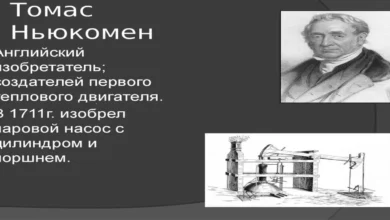Lingua Amputo: Understanding the Concept and Its Significance

The term “lingua auto” may not be one you hear daily, yet it holds profound significance in certain contexts. Whether you’re delving into linguistic studies, cultural exploration, or symbolic interpretations, the “lingua amputo” concept invites curiosity and reflection.
This article explores the depths of “lingua amputo,” unravelling its meaning, usage, and cultural implications. Written in an engaging and conversational tone, this guide aims to clearly understand the subject while maintaining a professional, expert perspective.
The Meaning Behind Lingua Amputo
Lingua auto translates loosely from Latin to mean “cutting off the tongue” or “language amputation.” While the phrase may initially seem jarring, its implications are deeply symbolic. It can describe the loss of language, suppression of speech, or the severing of communication in various forms.
This concept often appears in discussions of censorship, the erasure of cultural identity, or the emotional impact of losing one’s voice. The term’s metaphorical nature lends itself to interpretations across disciplines, from literature to sociology.
In a literal sense, lingua amputee might evoke images of silence and suppression. However, on a broader scale, it represents the idea of being unable to express oneself fully or freely, which resonates deeply in today’s world.
Historical and Cultural Context of Lingua Amputo

To understand lingua amputo origins and cultural relevance, one must look at its historical and linguistic roots. The phrase originates from Latin, a language known for influencing law, philosophy, and classical education. Latin terms like lingua and amputee have been used metaphorically for centuries to discuss concepts of communication and severance.
Throughout history, language has been a powerful tool for control and liberation. Instances of forced linguistic assimilation or the banning of native tongues in colonized nations are real-world examples of lingua auto in practice. These acts often aimed to erase cultural identity and impose dominance.
In literature and art, the concept of lingua auto serves as a poignant metaphor. Writers have used it to depict characters stripped of their voices through societal oppression or personal trauma. This theme resonates in modern storytelling, emphasizing the importance of preserving the right to speak and be heard.
The Psychological Impact of Losing One’s Voice
The idea of losing one’s ability to communicate is deeply unsettling. Language is a means of expression and a fundamental part of human identity. The symbolic implications of lingua auto extend into psychology, where the inability to express thoughts and emotions can lead to isolation and frustration.
In cases of trauma, individuals often experience a symbolic form of lingua amputation. They may struggle to articulate their pain or find their voice suppressed by societal stigmas. Addressing these challenges involves creating safe spaces where people feel empowered to speak freely.
This phenomenon also highlights the importance of communication in relationships. When dialogue breaks down, it can lead to misunderstandings and conflicts, further reinforcing the idea of language as a vital bridge between individuals.
Lingua Amputo in Modern Society
In today’s interconnected world, lingua amputation can take many forms. From social media bans to the suppression of minority languages, the concept remains relevant in various contexts. Discussions around censorship and freedom of speech often echo the themes of linguistic amputation, emphasizing the need to protect diverse voices.
Globalization has brought about both opportunities and challenges for languages. While it fosters cross-cultural communication, it also threatens the survival of less widely spoken tongues. Efforts to preserve endangered languages are crucial in combating language’s metaphorical and literal aspects.
The rise of artificial intelligence and technology has also introduced new dimensions to this discussion. Voice assistants and translation tools have revolutionized communication, but they raise questions about authenticity and the potential loss of cultural nuances.
The Role of Education in Combating Lingua Amputo
Education plays a critical role in preventing linguistic amputation. By teaching and celebrating diverse languages, societies can foster understanding and inclusivity. Schools have the power to promote multilingualism, ensuring that cultural identities are preserved for future generations.
Beyond formal education, community efforts can make a significant impact. Language revitalization programs, storytelling sessions, and cultural exchanges are powerful tools to counteract the effects of lingua amputation. These initiatives not only preserve languages but also strengthen the bonds within communities.
Language is a living entity that constantly evolves and adapts. Encouraging its growth and diversity ensures that every voice is preserved in the sands of time.
Lingua Amputo as a Metaphor in Art and Literature
The symbolic use of lingua amputee has inspired countless artists and writers to explore themes of silence, suppression, and resilience. From novels to poetry, this concept serves as a lens through which creators can address profound human experiences.
One notable example is its use in dystopian literature, where oppressive regimes strip individuals of their freedom to speak. These narratives often highlight the power of language as a tool for rebellion and self-expression, reinforcing the idea that losing one’s voice is a form of disempowerment.
In visual arts, imagery related to lingua amputee can evoke strong emotions. Art installations and performances often use severed or muted speech to comment on societal issues, making it a powerful symbol of resistance and resilience.
Personal Reflections on Lingua Amputo
Many people can relate to the feeling of being unheard or misunderstood on a personal level. Whether due to language barriers, societal expectations, or internal struggles, the experience of linguistic amputation is universal.
Reflecting on these moments can lead to growth and self-awareness. Finding ways to reclaim one’s voice through writing, speaking, or other forms of expression is a transformative journey. It reminds us of the resilience of the human spirit and the enduring power of communication.
The concept of lingua amputee also invites empathy. Recognizing the challenges faced by those whose voices are silenced encourages us to advocate for inclusivity and understanding in our communities.
Conclusion
Lingua auto transcends its literal meaning, touching on identity, resilience, and the universal human need for connection. It reminds us of the power of language and the importance of preserving our voices in a world that often seeks to silence them.
By understanding the implications of Lingua Amputo, we can appreciate the value of communication in all its forms. Whether through education, art, or personal reflection, we have the tools to combat linguistic amputation and celebrate the diversity of human expression.
Let this be an invitation to cherish your voice and use it boldly. In doing so, you honour yourself and yourself and the countless voices that have been silenced throughout history.





